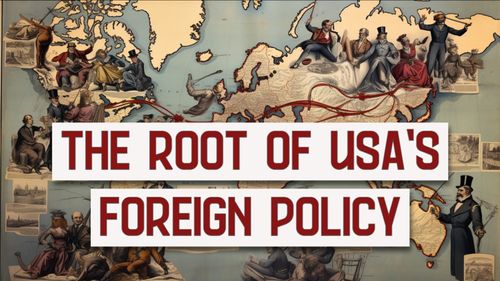The Monroe Doctrine & its significance explained in 1 minute
Dec 06, 2023 · 2 mins read
0
Share

The Monroe Doctrine, declared by President James Monroe in 1823, aimed to prevent European colonization in the Americas.
Save
Share
It asserted that further colonization or interference by European powers in the Western Hemisphere would be considered an act of aggression.
Save
Share
The Doctrine emphasized two main principles: non-colonization and non-intervention.
Save
Share
It became a cornerstone of U.S. foreign policy, setting the stage for America's influence in the Western Hemisphere.
Save
Share
The policy aimed to protect emerging Latin American nations from European intervention and secure U.S. dominance in the region.
Save
Share
The Doctrine faced early skepticism but gained traction, reflecting America's growing power and influence.
Save
Share
It laid the foundation for future U.S. involvement in Latin America, often criticized for both its positive and negative impacts.
Save
Share
The policy evolved over time and was invoked by successive U.S. administrations to justify various interventions.
Save
Share
Critics argue it was used to justify U.S. imperialism, while supporters view it as a means to preserve regional stability.
Save
Share
For better or worse, the Monroe Doctrine shaped U.S. foreign policy, leaving a lasting impact on relations between the Americas and Europe.
Save
Share
0